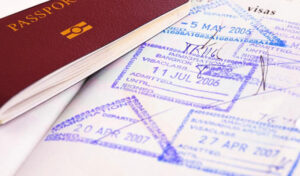Medical Malpractice is a global issue that affects healthcare providers and patients alike. It occurs when a healthcare provider fails to meet the standard of care in their field and it causes injury, illness, or death to a patient.
Those affected by medical malpractice must understand the legal framework, patient rights, and procedures for filing claims in Thailand. This article will explore these issues in detail.
Patient Rights
Patients have the right to receive comprehensive information and potential risks from healthcare professionals before a procedure is performed. They also have the right to change healthcare providers if they feel that their concerns are not being addressed. Moreover, patients have the right to file complaints against medical practitioners for malpractice.
However, this system can be cumbersome and difficult to navigate, particularly for foreign patients. There are many factors that can complicate claims including: a statute of limitations, cultural factors, and insurance company resistance.
Despite the challenges, there is an emerging movement in Thailand to adopt some form of medical malpractice legislation. Various professional organizations (representing medical professionals) and NGOs (representing patients) have proposed draft bills.
Like most ASEAN countries, medical negligence is a growing concern. It creates transactions costs for healthcare systems, such as defensive medicine, and legal systems, such as compensation procedures and litigation. These are exacerbated by the fact that most countries in the region have not yet enacted a no-fault patient compensation system (NFPCS).
Although Thailand has made some progress in improving medical malpractice issues, it still faces significant challenges. Changing the culture of medical negligence in the country will require policy reforms, better reporting systems, and increased awareness. It will also be necessary to ensure that victims of medical malpractice are compensated fairly and effectively.
Statute of Limitations
While many medical professionals strive to provide the best care possible, mistakes do occur. When those mistakes cause harm or injury, victims have the right to claim compensation. However, navigating the legal system and proving malpractice can be challenging.
Fortunately, laws exist to protect patients from malpractice and hold doctors accountable for their actions. Malpractice claims are investigated by the medical council, and disciplinary action may be taken against physicians who have breached their professional standards. In addition, the Patient Rights Protection Act offers additional safeguards for patients.
Malpractice includes any action or omission by a healthcare provider that deviates from accepted medical standards, causing injury or damage to the patient. It can also include failure to properly diagnose a condition or failure to refer patients for proper care. In some cases, a medical professional may be held liable for negligently performing surgery that causes complications.
For a medical malpractice claim to succeed, it is important for patients to document their injuries and seek immediate medical attention. Medical records, treatment histories, prescriptions, photographs and expert opinions should all be collected to support the claim. Claims can be filed with the medical council, consumer protection agencies and civil courts. Civil lawsuits are often settled out of court through mediation or conciliation. A lawyer specializing in medical malpractice can help patients gather evidence, navigate the legal process and negotiate with insurance companies on their behalf.
Cultural Factors
While many healthcare providers in Thailand take precautions to ensure patient safety, there are still serious concerns about medical malpractice in the country. Patients who believe they have been harmed by medical negligence can pursue legal action through the courts, and may be eligible for compensation under Section 291 of the Criminal Code, which covers cases where a healthcare provider’s negligence leads to death or grievous bodily injury.
Cultural factors can complicate malpractice claims. For example, the societal respect for doctors may lead to reluctance to file a lawsuit against them. In addition, a physician’s inability to communicate effectively with patients or provide them with comprehensive information about their treatment options and risks can impact the success of a medical malpractice case.
Another issue is that many patients who are harmed by medical malpractice in Thailand receive less compensation than they deserve. This is partly due to the fact that damages awarded for intangible losses such as pain and suffering tend to be lower than in some Western countries.
For these reasons, it is advisable for victims of medical malpractice in Thailand to seek the advice of an experienced attorney. An attorney can help clients gather and present evidence, file a complaint with the Medical Council of Thailand, and negotiate with insurance companies to obtain a fair settlement.
Insurance Company Resistance
Despite Thailand’s high standard of medical care, patients can still suffer injuries from malpractice. It’s important to understand the nature of medical malpractice, the legal framework, and the process for pursuing compensation.
Medical Malpractice in Thailand is defined as professional negligence that results in substandard treatment and harms a patient. This includes failure to diagnose, provide the necessary treatment, and/or warn a patient of potential health risks.
In many cases, it can be difficult for victims of medical malpractice in Thailand to bring a lawsuit because of language and cultural factors. The Thai culture holds physicians in high esteem and bringing a claim may be seen as a lack of respect for the profession. It’s also a fact that some insurance companies discourage patients from seeking compensation by denying claims or offering low payouts.
For foreigners pursuing a malpractice case, it’s essential to work with a lawyer who is fluent in Thai and familiar with the local legal system. It’s also advisable to seek the help of expert witnesses, as these professionals can prove that a healthcare provider breached their duty of care and directly caused the injury or illness. In addition, damages awarded in medical malpractice claims in Thailand are based on verifiable losses. This is different from Western nations, where damage awards are based on intangible losses.
No related posts.










